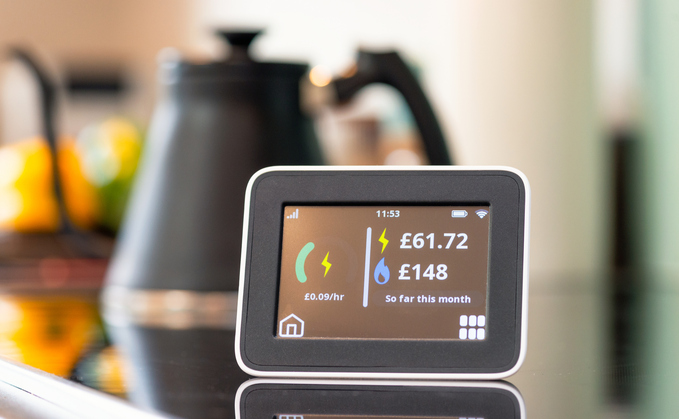
Concerns mount about effectiveness of UK smart meter roll-out, after government revises upwards its figures for faulty devices
The UK's smart meter rollout has been dealt another blow, after government figures revealed nearly four million smart meters in homes and businesses are not working as they should.
Data published by the Department for Energy Security and Net Zero last week revealed 3.98 million smart meters out of a total of 34.4 million installed in the UK were "operating in traditional mode" and without smart functionality.
DESNZ also revealed that it had revised up its figure of the number of faulty smart meters for June 2023, after energy suppliers responsible for installing the devices in buildings admitted to reporting errors. While the department had previously reported there were 2.7 million faulty meters in June 2023, it has now increased that figure to 4.3 million.
The data prompted Energy Efficiency Minister Lord Callanan to urge energy regulator Ofgem to work with energy suppliers to redouble efforts to deploy smart meters that boast the functionality necessary to maximise the benefits the technology is supposed to deliver.
"I am aware of Ofgem's own request for information to suppliers earlier this year seeking further information on the actions being taken by energy suppliers to resolve challenges around meters not operating in smart mode," Callanan wrote last week in a letter to Ofgem CEO Jonathan Brearley. "Given the importance of smart meters operating in smart mode from a consumer and wider energy system perspective, I am now seeking confirmation from you as to the action Ofgem will be taking."
Callanan said he was "deeply concerned" that almost four million meters were not operating as they should.
"The government put in place legal requirements for energy suppliers to take all reasonable steps to operate installed meters in smart mode," he wrote. "The scale of some suppliers' underperformance in optimising their operational metering estate over a period of time shows these steps have not been taken universally."
The official smart meter data was published as Ofgem separately launched a consultation into a new "dynamic" price cap system, which would see the price of electricity and gas vary depending on the time of day.
The proposals published on Monday would replace the current system, where Ofgem fixes the maximum price that can be charged for each unit on a default energy tariff for a typical household.
"The current approach to the cap has largely succeeded in addressing the loyalty penalty and in driving incumbent suppliers to improve efficiency," an Ofgem consultation paper notes. "But as we reflect on lessons from recent significant market volatility and look to a future where the retail market will need to be considerably more dynamic, it is clear that the cap in its current form has some limitations and reform is needed to ensure it can continue to protect consumers as the retail market evolves."
Functional smart meters are a critical component of delivering a more dynamic energy price regime in the UK, because they send near real-time data on consumer energy consumption to suppliers, and enable households to precisely track their energy use so as to adjust their consumption to when prices are at their lowest.
Advocates of smart tariffs and dynamic pricing maintain the approach has a critical role to play in the development of a zero emission grid, as it helps better match demand with variable supply from renewables, leading to reduced grid balancing costs for everyone.
But currently, just 54 per cent of homes and businesses in the UK have an advanced or smart meter, working correctly, according to the DESNZ data.
Writing on social media platform X yesterday, Emma Pinchbeck, the CEO of Energy UK trade body, described concerns about the effectiveness and speed of the UK rollout as a "perennial issue".
"A workable and fast rollout of meters is also not beyond the wit of man," she said. "Spain has 100 per cent penetration. Estonia got to 98 per cent in two years. Finland and Sweden are at 100 per cent of first gen and doing their second gen rollout."
Last year, MPs on the Public Accounts Committee called on the government to set out how it planned to convince more people to take up smart meters more than a decade into the "troubled" roll out of the technology.
Roughly 3.5 million smart and advanced meters were installed in 2023, in a six per cent decrease on installations in 2022, according to the latest figures from DESNZ.
Could you or a colleague be recognised at the inaugural Women in Green Business Awards? You can submit your nominations for the awards now.









